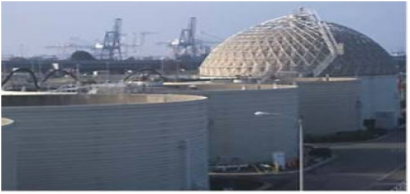
The study finds rising concern towards reduction of fossil fuel use and carbon emission will fuel the UK anaerobic digestion market. In December 2015, the government of UK announced the Energy Consumption Tax (ECT) aiming to convert process residues to energy thereby reducing fossil fuel demand to 25 percent.
The Netherlands in 2016, accounted for over 4 percent annual capacity share across the Europe anaerobic digestion market. Cost competitive deployment of AD systems when compared to landfill and incineration based plants will appreciably drive the industry growth. Additionally, national renewable integration and emission targets in compliance to the European Union Renewable Energy Directive 2009/28/EC will significantly foster the business outlook. The nation has set targets to achieve 14 percent renewable capacity in coherence with achieving 16 percent reduction in carbon emissions by 2020.
The report states large scale deployment of sustainable energy across industrial establishments favored by rapid industrialization will augment the Europe anaerobic digestion market . The technology has further been favored on account of ongoing government incentives including Renewable Heat Incentives (RHI), biogas electricity feed-in tariffs. The industry in the recent years has witnessed extensive investments from public and private institutions supporting the deployment of AD plants across the region.
The report extensively bifurcates the various contenders of Europe Anaerobic Digestion market. Prominent contributors such as BTS Biogas, Tamar Energy, Weltec, AD4Energy, Biogen, Clarke Energy, EnviTec, Biogen, Blue Sphere, CH4 Biogas, PlanET Biogas, Xergi, Veolia, SEaB Energy, and Stream BioEnergy have been scrutinized in terms of their financials, strengths, weaknesses, potential threats in the market, and future opportunities.
Limited availability of land in context to landfills & dump coupled with growing awareness toward waste management will fuel the municipal anaerobic digestion market share. Increasing deposition of waste on account of rapid urbanization along with growing initiatives toward recycle & re-use are few indispensable parameters driving the technological adoption. Countries including UK applied gate fee to waste producers such as municipalities, commercial & industrial producers for treating and accepting the waste.
Stringent government regulations toward the treatment of residues and wastes with minimal environmental impacts will embellish the anaerobic digestion market growth. Paradigm shift towards energy conservation coupled with national targets associated with curbing emissions across the region will further stimulate the product penetration.
Anaerobic digestion market over the years has encountered diversified applications across agriculture, municipal, and food & beverage industries. Entrepreneurs and farmers across the region have adopted these technologies to institute a predictable income stream and energy source with an aim to reduce dependency on mineral fertilizers and fossil fuel. Additionally, the food and beverage industry has embraced the technology to process its residue in an ecological acceptable manner and avoiding landfill fee.

